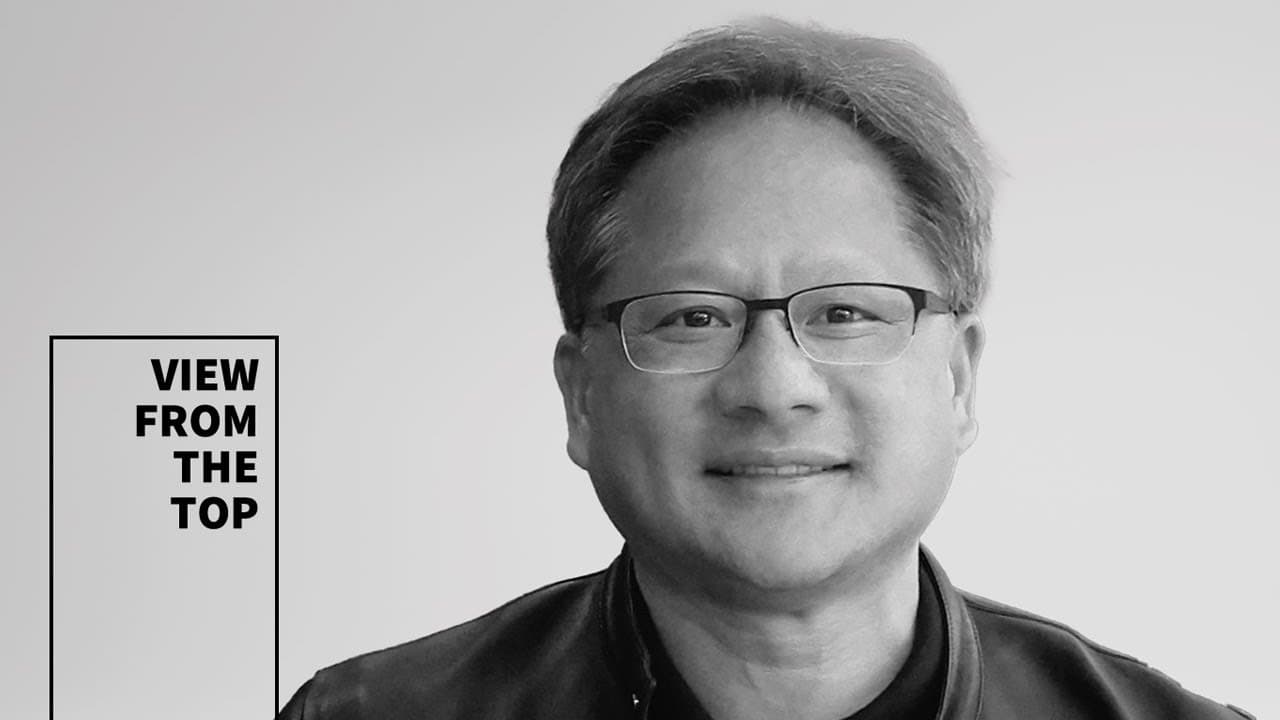Jensen Huang, Founder and CEO of NVIDIA
06 Mar 2024 (1 year ago)

NVIDIA's Founding and Early Focus
- Jensen Huang, the CEO of NVIDIA, was invited to Stanford to talk about his journey as a founder.
- After leaving LSI Logic, Huang was motivated to start a company with Chris and Curtis, who were at Sun Microsystems.
- Their goal was to build a computer that could solve problems that a normal computer couldn't, leading to the founding of NVIDIA.
- Initially, NVIDIA focused on 3D graphics for video games, creating a market that didn't exist at the time.
- Huang emphasized the importance of creating both technology and markets for NVIDIA's success, which has become a core principle of the company for the past 30 years.
NVIDIA's Expansion and Innovations
- Nvidia's initial focus was on pioneering a new way of doing computing through computer graphics.
- The company later expanded its applications to include image processing, particle physics, fluids, and other areas.
- Nvidia's invention of programmable shaders made all forms of imaging and computer graphics programmable.
- CG, a programming language developed by Nvidia, allowed for the expression of more sophisticated algorithms on GPUs.
Challenges and Investment Philosophy
- Nvidia's belief in creating a computer that solves problems normal processing can't do drove the company's investments in the future, even when markets didn't exist.
- The company faced challenges in convincing stakeholders about the potential of its technology due to the absence of a clear market.
- Nvidia used "early indicators of future success" (EOIFS) to provide hope and evidence of progress despite the lack of immediate market presence.
- The key to investing in something distant with conviction is to find early indicators of success.
- Nvidia selects projects based on their importance and potential to advance scientific fields, rather than immediate financial returns.
Leadership and Organizational Structure
- During challenging times, the company focuses on its core beliefs and continues working without significant changes unless the underlying assumptions have changed.
- The CEO emphasizes the importance of gut checks and staying focused on the core during difficult times.
- Despite being an introvert, the CEO believes in facing employees during challenges and explaining the situation transparently.
- Nvidia has a flat organizational structure, with the CEO encouraging direct reports and employees to share their top concerns and reminding them that no task is beneath him.
- The CEO's hands-on approach stems from his diverse past experiences, including cleaning toilets as a dishwasher.
Generative AI and the Future of Computing
- The speaker discusses their approach to reasoning through complex problems and empowering others to do the same.
- They emphasize the importance of understanding the context and sharing information transparently to create an environment where employees can make informed decisions.
- The speaker addresses the topic of generative AI and accelerated computing, explaining how these technologies can understand and translate between different modalities of information.
- They highlight the potential implications of generative AI for various industries and applications, emphasizing the need for entrepreneurs to consider how their businesses may be disrupted or transformed by these technologies.
Organizational Structure and Culture
- The way organizations are structured should be based on their purpose and the environment they operate in, not on traditional hierarchies.
- Nvidia's organizational structure is designed to facilitate the building of whatever it is they build better.
- The CEO's job is to create the conditions for employees to do their life's work by architecting the company's culture and operating system.
Challenges and Opportunities in the Next Decade
- Jensen Huang believes that Nvidia's unique contribution is advancing the future of computing and making a positive impact on humanity.
- The challenges Nvidia faces in the next decade include technical challenges, market creation challenges, industrial and geopolitical challenges, and social challenges.
- Jensen Huang is concerned about the pace of AI development and believes that regulation may be needed, but he also emphasizes the importance of technology in developing guardrails, fine-tuning, alignment, and safety for AI systems.
Personal Reflections and Advice
- Jensen Huang's fondest memory of working at AMD was the great company culture.
- Jensen Huang's parting advice to Stanford is to have a core belief, gut check it daily, pursue it with all might, surround yourself with loved ones, and take them on that journey.